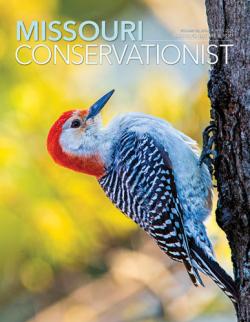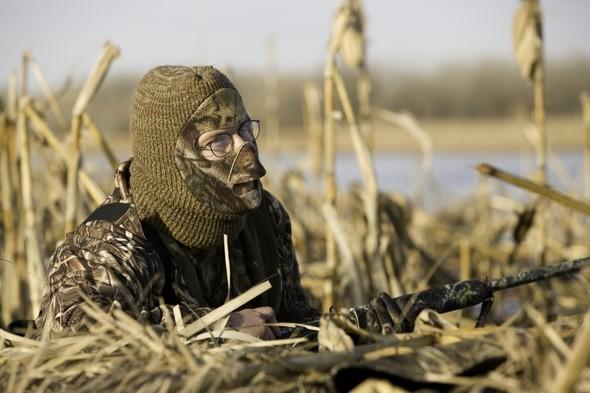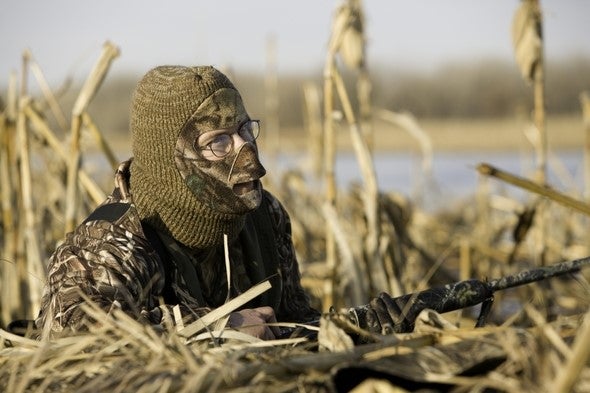
Xplor reconnects kids to nature and helps them find adventure in their own backyard. Free to residents of Missouri.


































Stay in Touch with MDC news, newsletters, events, and manage your subscription

Xplor reconnects kids to nature and helps them find adventure in their own backyard. Free to residents of Missouri.

A monthly publication about conservation in Missouri. Started in 1938, the printed magazine is free to residents of Missouri.


CAPE GIRARDEAU, MO. – The Missouri Department of Conservation (MDC) is preparing area wetlands for upcoming waterfowl seasons. Duck season in Missouri’s Middle Zone starts this weekend, Nov. 3 – 9, with a second season Nov. 15 to Jan. 6, 2019. The South Zone duck season is Nov. 22-25 and Dec. 3, to Jan. 27, 2019. Managers of the wetland conservation areas in southeast Missouri have information to share about what hunters can expect.
At Duck Creek Conservation Area (CA) dirt work occurring as part of the final phase of the Golden Anniversary Renovation could impact the area if dry conditions persist. However, most of the work will be pushed back until after the duck season if typical November wet weather arrives. Duck Creek CA Area Manager Nicole Walker said more rain will help the available habitat as current conditions have Pool one very low and warmer weather has kept trees active later in the fall than we typically see.
“While the moist soil habitat looks promising, additional significant rain events are needed to flood our timber units,” she said. “With the added precipitation, and more persistent cooler weather to put our trees into dormancy, we’ll be able to start flooding the Duck Creek and Mingo National Wildlife Refuge (NWR) Timber Units.”
The dry weather this fall has allowed the installation of two new hunting blinds on Duck Creek. Blinds B1 and BB4 were replaced this summer as MDC continues to evaluate where blinds will be replaced or newly installed across the area. Also, ten hunting boats purchased last season will be available to hunters.
To start the season, Duck Creek has 14 available hunting locations, which will slowly increase up to over 40 positions once the area and Mingo NWR are fully flooded.
At Otter Slough CA, area manager Kevin Brunke, said hunters can expect 30 hunting locations at the beginning of the season with a possible increase to 34 after the trees enter their dormant state.
“Moist-soil vegetation on the area looks very good and duck use up to this point has been typical of what we see on the area early in the migration,” Brunke said, adding that Units 36 and 37 will be flooded late due to well issues that we are currently addressing on the area.
Habitat looks good at Ten Mile Pond CA according to area manager Tyler McCann.
“The birds will arrive soon, and we’ll see what the season brings but our habitat has done well on the area again this summer,” McCann said.
Ten Mile Pond hunters can expect 10 to 12 hunting locations at the beginning of the season with a possible increase up to 19 as water and habitat allows.
All three area managers said they encourage hunters to ask questions if they’re not familiar with the areas. Staff are happy to help hunters, but generally have more time to do so once the draw is done. The other tip they have for hunters is to “Get where the ducks are and hide the best you can.”
“Typically, hunters don’t take the extra time to hide themselves well enough,” Brunke added. “A duck’s ability to see hunters is underappreciated and as a result they don’t decoy as well.”
Three permits are required for goose, duck and coot seasons, including the Small Game Hunting Permit, the Migratory Bird Hunting Permit and the Federal Duck Stamp. Limits are six ducks daily with specific species restrictions found in the Migratory Bird and Waterfowl Hunting Digest or online at https://huntfish.mdc.mo.gov/hunting-trapping/seasons/species. Fifteen coots may be taken daily. Possession limits are three times the daily bag limits for ducks and coots.
All waterfowl hunters should have a copy of the Migratory Bird and Waterfowl Hunting Digest 2018-2019, available where permits are sold and also online at https://huntfish.mdc.mo.gov/sites/default/files/downloads/2018MWB.pdf.
Information for Duck Creek, Otter Slough and Ten Mile Pond conservation areas is available at https://huntfish.mdc.mo.gov/hunting-trapping/where-hunt-shoot, or by calling Duck Creek at (573)222-3337, Otter Slough at (573)624-5821, or Ten Mile Pond at (573)649-9491.